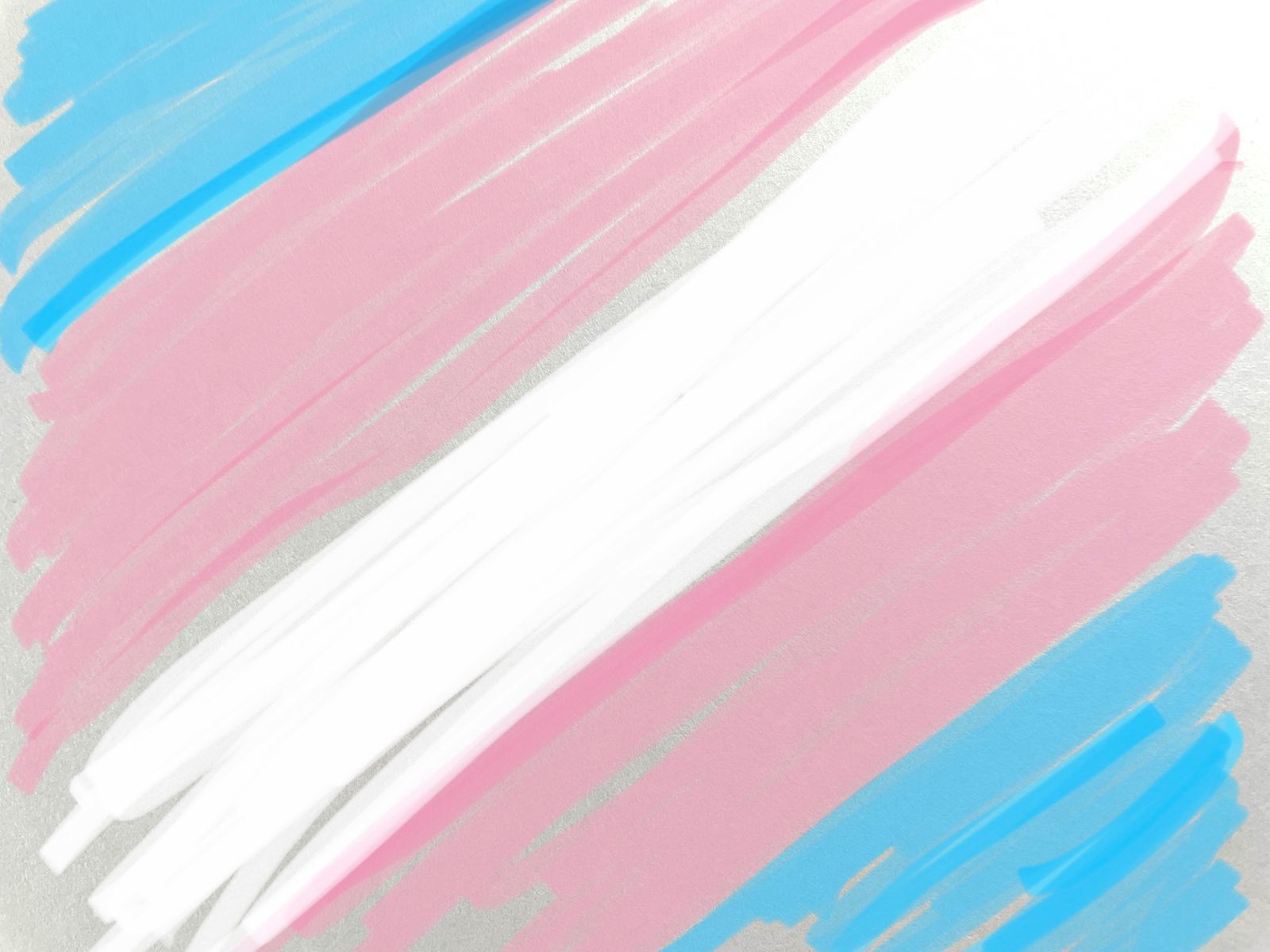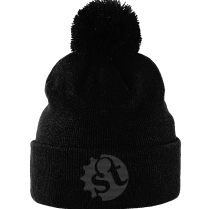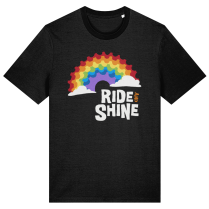
Hannah has been pondering this article all summer, trying to find the words to express how she feels about the emerging bans on trans women’s participation in women’s cycling – and other women’s sports. She thinks she’s finally found them.
As the CTT, British Cycling and UCI each published its new rules around transgender athletes, I’ve stayed quiet. My mental health couldn’t face another round of the comments section – perhaps not so much on the pages of Singletrack, but certainly on the broader internet, and occasionally in real life. Another round of reading ‘your opinion is wrong’, or ‘this article sucks’ or whatever isn’t what my brain chemistry needs.
But then I saw a social media post from a trans athlete who should have been representing her country at the UCI World Championships. Instead, she was at home, trying to figure out her place in life, and struggling with depression and self harming thoughts. And then I thought, it’s one thing for me to fear the comments section telling me my opinion is wrong. How must it feel to have the comments section telling you your existence is wrong? Debating your right to exist, to compete, to live life in its entirety? And so, I’m here, with a tardy response to the various policies that have recently been published. To the trans athletes facing daily stresses, I’m sorry it took me so long.
Latest Singletrack Merch
Buying and wearing our sustainable merch is another great way to support Singletrack
I don’t want to join the patriarchy
As a women, if I’d been born a century earlier I wouldn’t have been allowed to ride a bike, run a marathon, vote… all that stuff that women have been fighting for. The Equal Pay Act didn’t come in until after I was born, and it’s still not fully implemented. But I don’t want equity and parity with men so I can join the patriarchy. I want it because I want a fairer society, and having made substantial gains I think it’s incumbent upon all of us to see who else society has left behind, mistreated, and kept back.
All too often I see women saying things along the lines of ‘we’ve fought hard for this and trans people are taking it away from us’. My attitude is ‘we’ve fought hard for this and now we have the power to help others have it too’.
Now that I and other women get to enjoy the freedoms we’ve fought for, why would we stand in the way of others experiencing them too? If we women thought it was unfair and detrimental to our abilities to live life to the full if we couldn’t participate in sport at all levels, surely we should understand how it feels to be excluded? It seems more important to me to say ‘we’re a welcoming and tolerant society that embraces everyone’ than to say ‘this podium is only for us, because some of you might possibly have an unfair advantage, although we don’t really know where to draw the line on where that is or even if it actually exists’.
Competitive sport doesn’t trump human rights
Let’s go back to this idea: ‘we’re a welcoming and tolerant society that embraces everyone’. Remember how women felt fettered and kept down by being told we couldn’t play this sport, or do that job, or wear those clothes? Remember how people of colour were told they couldn’t go to that school, or walk through that door, or drink from that water fountain? History is full of one part of society telling another part that they’re not allowed to do this or that, and it doesn’t cast the tellers in a favourable light.
If we agree that the freedom to do the things we love, live safely with the people we love, and live full lives are human rights, then how can we place competitive sport as some kind of exemption where rights don’t apply? Clearly rights do matter when it comes to sport – no one is happy to learn of athletes being abused, or pressured into unhealthy training plans in search of ‘results’. And women have certainly fought hard enough to be allowed to participate that it seems fair to assume that participation should be seen as a right. I am deeply uncomfortable with the idea that I could be allowed to stand on a podium because someone else better than me wasn’t allowed to be there. That’s not protecting me, or women’s sports. That’s removing the human rights of others.
Policing ‘Women’
The new policies set definitions of what it is to be a woman, and along with that there comes finger pointing, lab tests, and judgement. Does she look like a woman? Should she be asked to prove she’s not a trans woman? Do female athletes need to conform to some sort of ideal or norm in order to avoid such speculation?
It is a strange thing, to be misgendered. It has happened to me with some regularity ever since I was a teenager. It comes in a variety of formats, from the outright grope ‘to check if they’re real’ to the momentary error ‘there you go, son’ that’s corrected as soon as I speak. Curiously, there have been a whole slew of mothers telling their children not to bump into ‘that man’ (often with the child correcting ‘mummy, it’s a lady’). A few instances of being told ‘these are the women’s toilets’. Usually, on realising their mistake, reactions are one of horrified embarrassment. Reasons are given: ‘it’s your hair’, ‘you’re so tall’, ‘it’s the hat’. These events invariably make me feel hurt, judged and somehow inadequate. Less of a woman, more of a freak. But I am lucky: these instances are not daily occurrences, and I am not generally required to ‘prove’ I am a woman. That must be constantly hurtful and exhausting.
In making these judgements about me – or anyone else – people are comparing me to some sort of norm, or perhaps an ideal, and somewhere (‘it’s the hat’) placing me outside them. The ‘norms’, and being outside them, are exactly what gives many top athletes the winning edge. So where does the line get drawn? Do we draw lines about which men are too ‘abnormal’ to qualify? (Answer: no). If you think that ‘the science is clear’ when it comes to ‘being a woman’, would it surprise you to hear that you probably know a woman who would fail to meet the CTT’s new requirements re testosterone levels? The relatively common condition of PCOS can cause naturally elevated levels of testosterone that would be enough to see them banned from competition under the current rules. That’s not clear science – that’s defining, and policing, women.
Fairness is spurious
Fairness in sport is a myth. There’s always an advantage to be had, whether it’s being able to train without having a job on the side or being able to train with access to all the technology and telemetry. Indeed, professional athletes were once expected to do – and take – everything in their power to gain an advantage. It was only the notion of athlete welfare that saw some question the wisdom of this attitude, and the kinds of substance abuse this led to. At that time, women weren’t even allowed to compete in many sports, since we were considered to have body parts ill-suited to vigorous sport. And now, given the means and opportunity, women are showing up in competition and beating men. So why pick a male/female divide to invoke ‘fairness?’. Why not have ‘professional/amateur’ (once, this was a distinction as far as participation in the Olympics was concerned)? Or parents’ income brackets? Or red blood cell count? Or VO2 Max? Such categories would often do as much to create the mythical ‘level playing field’ as a male/female divide. Indeed, abandoning the male/female divide might well do much to stop ‘women’s sports’ being the second tier event it’s all too often relegated to being.
The problem is not trans women
If you do want to see the perpetuation and growth of women’s sport, trans women are not the issue. The sidelining of women’s events so that they don’t get equal coverage and equal prize money is the issue. Spurious (demeaning, objectifying) differences in professional sporting uniform requirements are the issue. The cat-calling and threat of violence that puts women off training alone, or at night, is the issue. The policing of girls’ bodies so that they feel too fat/too thin/too exposed/too sweaty when exercising through the changing bodies of their teenage years is the issue. The men that stare, or grope, or threaten. The men that don’t call out other men that stare or grope or threaten. Predatory coaches. Those are the issues. Not trans women. Addressing those issues, in sport and wider society, would make the world a better place for all of us.
And so, for all the reasons above, I can’t support the policies being implemented by organisations apparently acting to protect me and sports I might do. I simply don’t believe that excluding trans women from sports serves to further the cause of women. But I do believe that it will further the cause of those who would seek to perpetuate existing power structures.





